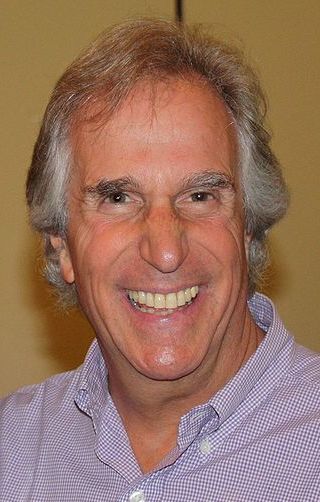Successful Dyslexics: Henry Winkler
By Antonella Vaccarino for the Reading Well

Quick Facts
- Full Name: Henry Franklin Winkler
- Current Job: Actor, director, producer and children’s book author
- Born: October 30, 1945
- Secret to Dyslexic Success: Determination, hard work and strong personal skills
- Hobbies: Fly Fishing
Biography
Henry Winkler was
born in 1945 in Manhattan to Anna Maria and Harry Winkler. His Jewish parents had left Germany in 1939
just prior to the start of World War II.
Winkler was a bright child but had difficulties in school. Despite making the effort in both math and reading, he couldn't meet his
parents’ expectations. They grounded him for bad grades and insisted that he study at his desk in his room for
weeks on end. His father refered to
him as “dumb dog” straining his relationship with both his parents.
“When I was growing up in New
York City, no one knew what dyslexia was. I was called stupid and lazy, and I
was told that I was not living up to my potential. It was, without a
doubt, painful. I spent most of my time covering up the fact that
reading, writing, spelling, math, science—actually, every subject but lunch—was
really, really difficult for me. If I went to the store and paid the bill
with paper money and I was given coins back for change, I had no idea how to
count up the change in my head. I just trusted that everyone was being
honest.”
Despite the challenges, Winkler eventually graduated and went on to earn a Master of Fine Arts degree from the Yale School of Drama in 1970.
Henry Winkler and Lin Oliver discuss their successful series of Hank Zipzer books.
Becoming the Fonz
His big break was landing the role of Arthur Fonzerelli, aka the Fonz, on the long running
US TV sit-com Happy Days. This was not an easy
task as he had a hard time reading his scripts. “You learn to negotiate
with your learning challenge. I improvised. I never read anything
the way that it was written in my entire life. I
could instantly memorize some of it and then what I didn’t know, I made up and
threw caution to the wind and did it with conviction and sometimes I made them
laugh and sometimes I got hired.”
Although he got the part
and excelled – the Fonzerelli character was planned as just a small part in
the series - but Winkler’s charisma and energy soon made him a co-star
with Ron Howard,
though his reading difficulties still dogged him. Even with two days to
read and
review his lines, he would improvise once he got to the
studio, unable to remember the dialogue he had worked so hard
to
memorize.
Discovering Dyslexia
It was only when Winkler was 31 and his step-son’s learning difficulties were diagnosed as dyslexia that he finally realized that he too had the learning disability.
In 2003 Henry Winkler’s agent suggested that he write children’s books and although he has stated that he, “never for one second thought about writing books,” he went on to meet with Lin Oliver with whom he has collaborated with to write the critically acclaimed Hank Zipzer series of children's books about a bright 4th grade boy with learning disabilities.
Winkler and Oliver modeled Hank after the young Winkler. “I grew up on the West side of New York City in the same building Hank lives in. The neighborhood, the stores, the park, the school, and even Ms. Adolf – the worst teacher in the universe - are all taken from my life.” To date Winkler has published 17 books about Hank Zipzer, the "world's greatest underachiever".
Today he often gets mail from young readers asking, “How do you know me so well,” and parents exclaiming that their children, who would never have attempted to read a book before, love reading about Hank Zipzer and continue to read though the series.
Quotes
“This is what I know: A learning challenge doesn’t have to stop you. Every child who writes me a letter about Hank Zipzer, I write back. In every letter I include, ‘your learning challenge will not stop you from meeting your dream. Only you will stop yourself from meeting your dream.’”
“You don’t have any idea how powerful you are and what you can achieve. You literally cannot give in to your fear. You literally have got to walk over it, step on it’s face and keep moving toward where you want to go and eventually, if I can get there, there’s no reason you can’t get there.”
“I guess the key is, no matter how many times you fall over, you dust yourself off and you keep moving.”
Return to the top of Henry Winkler
- Home ›
- Famous People with Dyslexia ›
- Henry Winkler
Photo Credit: Mark Naudi [CC-BY-SA-3.0 (http://creativecommons.org/licenses/by-sa/3.0)], via Wikimedia Commons
New! Comments
Share your thoughts or ideas! Leave us a comment in the box below. You can post it at this site only or on Facebook too, it's up to you.